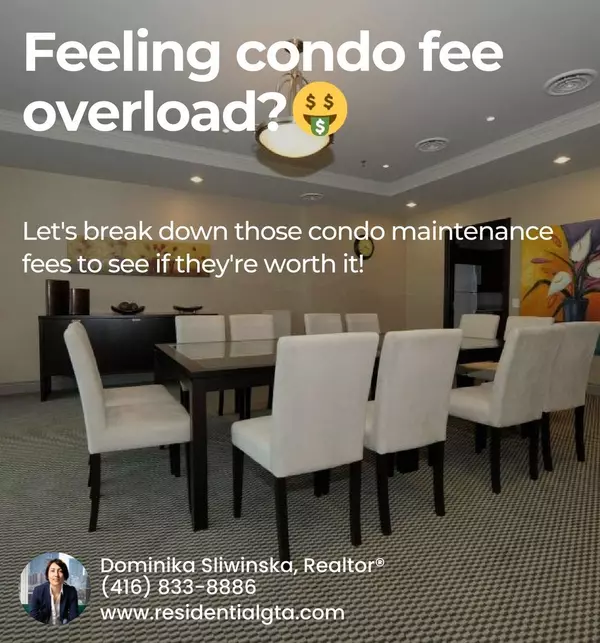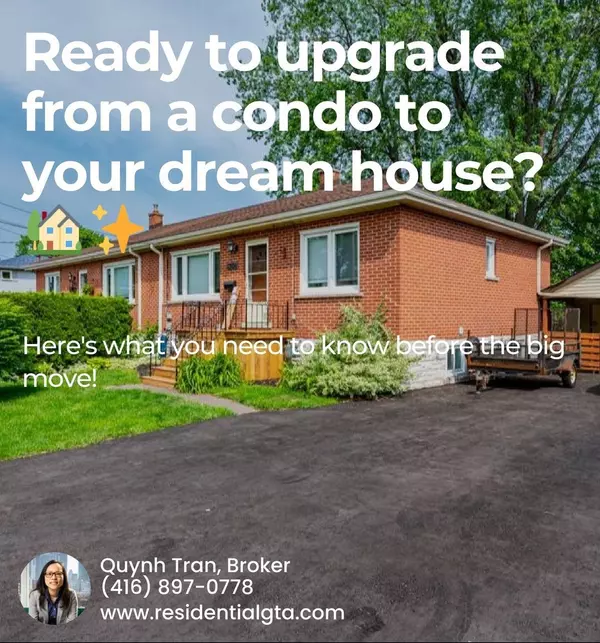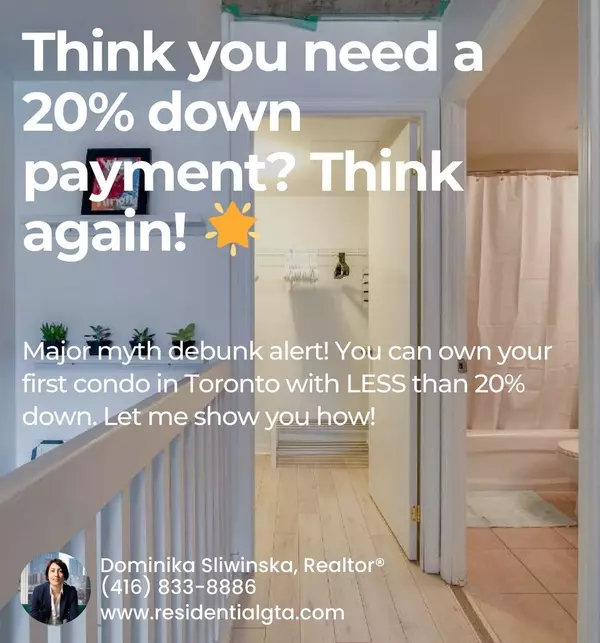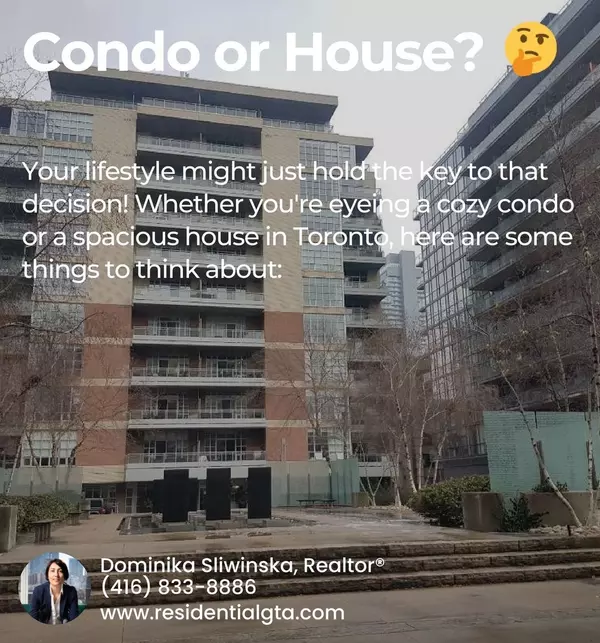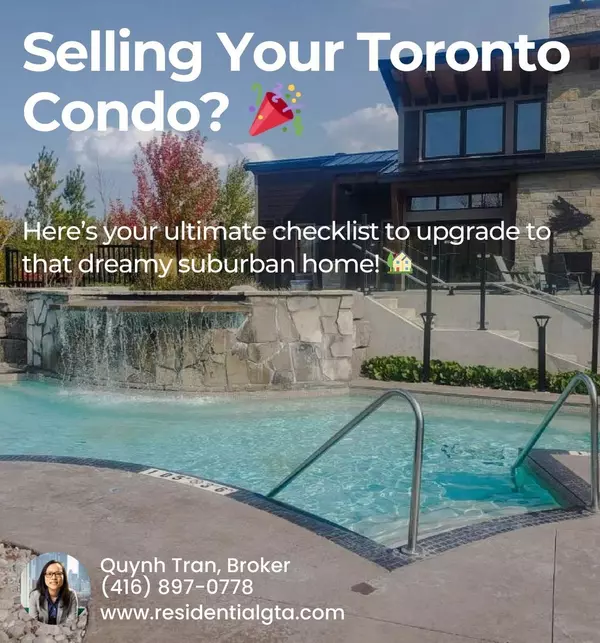First-Time Buyer? Here’s Your Ultimate Condo Budgeting Checklist
So, you're ready to make the leap from renting to owning your first condo in Toronto. Congratulations! It's an exciting time, but also one that requires careful planning, especially when it comes to budgeting. Here’s a step-by-step guide to help you navigate the financial side of buying your first condo. Let’s make sure there are no surprises along the way!
7 Hidden Costs First-Time Condo Buyers Often Overlook – Don’t Get Caught Off Guard!
Buying a condo isn’t just about the purchase price. Many first-time buyers overlook additional costs that can add up quickly. Here are seven hidden costs to watch for:
1. Closing Costs
Closing costs can be a bit of a shock if you're not prepared. They can range from anywhere between 1.5% to 4% of the purchase price. These include:
- Land Transfer Tax: In Toronto, you'll face both provincial and municipal land transfer taxes.
- Legal Fees: You’ll need a lawyer to handle the paperwork and ensure everything is in order.
- Title Insurance: This protects you from any issues related to the property’s ownership history.
2. Mortgage Insurance
If your down payment is less than 20%, you'll need to pay for mortgage insurance, which is usually added to your mortgage payments. The cost of this insurance can range from 2.8% to 4% of your mortgage amount.
3. Home Inspection and Appraisal Fees
Before closing the deal, it’s crucial to have the condo inspected and appraised. A home inspection will ensure there are no hidden issues, and the appraisal confirms the property’s value. These services typically cost a few hundred dollars each but are well worth it.
4. Condo Fees
Condo fees are a regular monthly expense that covers maintenance of common areas, amenities, and sometimes even utilities. Be sure to review what’s included in the fees for the condo you’re considering, as these can vary widely.
5. Property Taxes
Don’t forget about property taxes! These are assessed annually and can be a significant amount depending on the condo's location and value. Make sure to factor these into your monthly budget.
6. Utilities and Moving Costs
Moving into a new place usually involves setting up utilities, which might require deposits. Don’t forget the cost of moving services either—budget for movers or a rental truck to transport your belongings.
7. Renovations and Repairs
Finally, consider any immediate renovations or repairs you might need once you move in. Whether it’s a fresh coat of paint, new flooring, or fixing a leaky faucet, these costs can quickly add up.
Step-by-Step Budgeting for Your Condo Purchase
Now that you know about the hidden costs, let’s dive into creating a detailed budget for purchasing your first condo. Here are the steps:
Step 1: Determine Your Total Budget
Start by figuring out how much you can afford to spend on a condo. This includes your savings, any financial assistance from family, and how much you can borrow. Use a mortgage calculator to get an estimate of your borrowing capacity based on your income and existing debts.
Step 2: Save for a Down Payment
The down payment is typically the most significant upfront expense. Aim for at least 20% to avoid mortgage insurance, but remember that as low as 5% can get you started. Start a dedicated savings plan and automate transfers to ensure you stay on track.
Step 3: Estimate Additional Costs
Now, add up all the additional costs we’ve discussed, including:
- Closing costs
- Mortgage insurance (if applicable)
- Home inspection and appraisal fees
- Condo fees
- Property taxes
- Utilities and moving costs
- Renovations and repairs
Create a detailed spreadsheet to track these anticipated expenses.
Step 4: Get Pre-Approved for a Mortgage
Before you start shopping, get pre-approved for a mortgage. This not only gives you a clear idea of your borrowing limits but also shows sellers that you're a serious buyer. Lenders will assess your income, credit score, and debt levels to determine how much they're willing to lend you.
Step 5: Find the Right Condo
With your budget and pre-approval in hand, you can now start searching for your ideal condo. Work with a real estate agent who knows the Toronto market well and can guide you to the best deals. Don’t rush; take your time to find a property that fits your needs and budget.
Step 6: Make an Offer and Negotiate
Once you find the right condo, it’s time to make an offer. Your real estate agent can help you with this process, ensuring that you don’t overpay. Be prepared for some negotiation before both parties agree on a final price.
Step 7: Complete the Purchase
After your offer is accepted, you’ll move into the closing phase. This involves finalizing your mortgage, completing a home inspection, and having your lawyer review all documents. Pay close attention to detail to ensure everything goes smoothly.
Step 8: Move In and Manage Your Budget
Once the closing is complete, it’s time to move in! But the financial planning doesn’t stop here. Keep track of your monthly expenses, including mortgage payments, condo fees, and utilities. Set aside some money for ongoing maintenance and any unexpected repairs.
Expert Tips for Budget-Conscious Buyers
Here are a few additional tips to help you manage your budget effectively:
Negotiate Everything
From the purchase price to closing costs, don't be afraid to negotiate. Even small savings can add up.
Look for Grants and Incentives
Check for any first-time homebuyer grants or other incentives offered by government programs. These can provide significant financial relief.
Consider a Smaller Condo
If you’re working with a tight budget, consider purchasing a smaller condo or one in a less expensive neighborhood. You can always upgrade in the future.
Avoid Lifestyle Inflation
It’s easy to get carried away with new furniture and decor, but try to stick to a budget. Prioritize essential items and save up for the rest.
Conclusion
Buying your first condo in Toronto is a big step, but with careful budgeting and planning, you can make your dream of homeownership a reality. By understanding and preparing for all the costs involved, you can avoid financial surprises and enjoy your new home with peace of mind. Happy house hunting!
Categories
Recent Posts


